Abstract:
The discussion around different network architectures, namely high power/high tower (HPHT) versus low power/low tower (LTLP) is currently a hot topic in different interna...Show MoreMetadata
Abstract:
The discussion around different network architectures, namely high power/high tower (HPHT) versus low power/low tower (LTLP) is currently a hot topic in different international fora. This paper presents the results of a study to compare coverage, number of sites, and network deployment/maintenance costs associated to three different network configurations (HPHT only, LTLP only, and mixed HPHT + LTLP) for rooftop, mobile, and portable indoor/outdoor digital terrestrial television service delivery. The analysis has been based on a practical network planning scenario. The results have been obtained with coverage simulations in the Basque Country, a region in northern Spain currently served with 64 transmitters of a traditional broadcast network. The results conclude that a LPLT network would require 3.3 more centers for providing the same coverage as the current HPHT network at a cost three times higher. Also, it has been observed that the current HPHT network fails to give portable and mobile coverage numbers close to real-service targets in urban areas. In those cases, the approach with lower number of sites and cost is a mixed HPHT + LTLP network, where a set of LPLT transmitters complement the coverage provided by the HPHT network.
Published in: IEEE Transactions on Broadcasting ( Volume: 61, Issue: 2, June 2015)
Funding Agency:
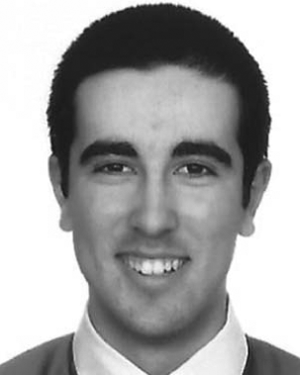
Department of Communications Engineering, University of the Basque Country (UPV/EHU), Bilbao, Spain
Unai Meabe, received the M.S. degree in telecommunication engineering from the University of the Basque Country, Bilbao, Spain, in 2014. He joined the TSR Research Group, (UPV/EHU), in 2010, where he has been involved in several research projects concerning digital broadcasting, such as the development of a coverage planning tool for the medium wave band. He is currently a Business and System Integration Analyst at Accent...Show More
Unai Meabe, received the M.S. degree in telecommunication engineering from the University of the Basque Country, Bilbao, Spain, in 2014. He joined the TSR Research Group, (UPV/EHU), in 2010, where he has been involved in several research projects concerning digital broadcasting, such as the development of a coverage planning tool for the medium wave band. He is currently a Business and System Integration Analyst at Accent...View more
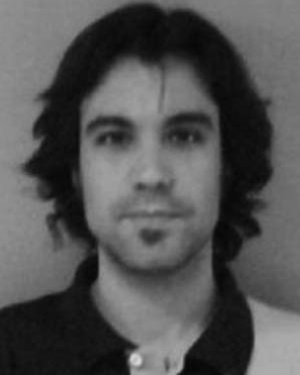
Department of Broadcast Engineering, Abertis Telecom. Av., Barcelona, Spain
Xavier Gil, received the M.S. degree in telecommunication engineering from the Universitat Politècnica de Catalunya, Barcelona, Spain, in 2003. In 2000, he joined Retevisión Audiovisual, Bilbao, Spain, as a RF Planning Engineer, designing antenna systems and nationwide broadcast coverage. In 2003, he joined AASIT, SL, Barcelona, as a Project Manager of the Engineering Department, where he worked on the Maresme Digital pro...Show More
Xavier Gil, received the M.S. degree in telecommunication engineering from the Universitat Politècnica de Catalunya, Barcelona, Spain, in 2003. In 2000, he joined Retevisión Audiovisual, Bilbao, Spain, as a RF Planning Engineer, designing antenna systems and nationwide broadcast coverage. In 2003, he joined AASIT, SL, Barcelona, as a Project Manager of the Engineering Department, where he worked on the Maresme Digital pro...View more
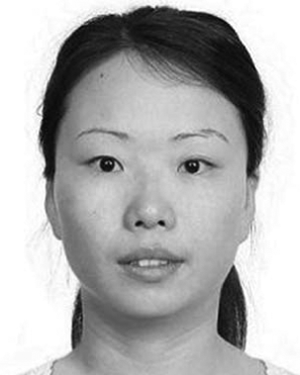
visiting researcher at the UPV/EHU, Bilbao, Spain
State Key Laboratory on Digital Television, School of Electronic and Information Engineering, Beijing University of Aeronautics and Astronautics, Beijing, China
Caiwei Li, received the M.S. degree in communication and information system from Xi’an University of Science and Technology, Xi’an, China, in 2009. She is currently pursuing the Ph.D. degree from Beihang University, Beijing, China. From 2013 to 2014, she was a Visiting Scholar with Radiocommunications and Signal Processing Research Group, Department of Communications Engineering, Bilbao Faculty of Engineering, University ...Show More
Caiwei Li, received the M.S. degree in communication and information system from Xi’an University of Science and Technology, Xi’an, China, in 2009. She is currently pursuing the Ph.D. degree from Beihang University, Beijing, China. From 2013 to 2014, she was a Visiting Scholar with Radiocommunications and Signal Processing Research Group, Department of Communications Engineering, Bilbao Faculty of Engineering, University ...View more
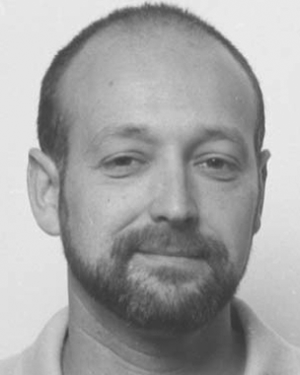
Department of Communications Engineering, University of the Basque Country (UPV/EHU), Bilbao, Spain
Manuel Vélez (M’05) received the M.S. and Ph.D. degrees in telecommunication engineering from the University of the Basque Country, Bilbao, Spain, in 1993 and 2008, respectively. In 1995, he joined the University of the Basque Country, where he is currently an Assistant Professor with the Department of Communications Engineering. He has been involved in research projects evaluating radio and television broadcasting system...Show More
Manuel Vélez (M’05) received the M.S. and Ph.D. degrees in telecommunication engineering from the University of the Basque Country, Bilbao, Spain, in 1993 and 2008, respectively. In 1995, he joined the University of the Basque Country, where he is currently an Assistant Professor with the Department of Communications Engineering. He has been involved in research projects evaluating radio and television broadcasting system...View more
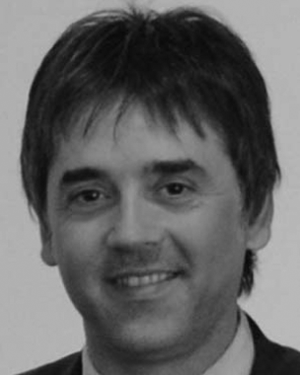
Department of Communications Engineering, University of the Basque Country (UPV/EHU), Bilbao, Spain
Pablo Angueira (SM’11) received the M.S. and Ph.D. degrees in telecommunication engineering from the University of the Basque Country, Bilbao, Spain, in 1997 and 2002, respectively. He joined the Communications Engineering Department at the University of the Basque Country in 1998. Within the TSR Research Group, he has been involved in several projects concerning digital broadcasting (Digital Video Broadcasting - Terrestr...Show More
Pablo Angueira (SM’11) received the M.S. and Ph.D. degrees in telecommunication engineering from the University of the Basque Country, Bilbao, Spain, in 1997 and 2002, respectively. He joined the Communications Engineering Department at the University of the Basque Country in 1998. Within the TSR Research Group, he has been involved in several projects concerning digital broadcasting (Digital Video Broadcasting - Terrestr...View more

Department of Communications Engineering, University of the Basque Country (UPV/EHU), Bilbao, Spain
Unai Meabe, received the M.S. degree in telecommunication engineering from the University of the Basque Country, Bilbao, Spain, in 2014. He joined the TSR Research Group, (UPV/EHU), in 2010, where he has been involved in several research projects concerning digital broadcasting, such as the development of a coverage planning tool for the medium wave band. He is currently a Business and System Integration Analyst at Accenture, Madrid, Spain, where he develops java applications for the banking industry.
Unai Meabe, received the M.S. degree in telecommunication engineering from the University of the Basque Country, Bilbao, Spain, in 2014. He joined the TSR Research Group, (UPV/EHU), in 2010, where he has been involved in several research projects concerning digital broadcasting, such as the development of a coverage planning tool for the medium wave band. He is currently a Business and System Integration Analyst at Accenture, Madrid, Spain, where he develops java applications for the banking industry.View more

Department of Broadcast Engineering, Abertis Telecom. Av., Barcelona, Spain
Xavier Gil, received the M.S. degree in telecommunication engineering from the Universitat Politècnica de Catalunya, Barcelona, Spain, in 2003. In 2000, he joined Retevisión Audiovisual, Bilbao, Spain, as a RF Planning Engineer, designing antenna systems and nationwide broadcast coverage. In 2003, he joined AASIT, SL, Barcelona, as a Project Manager of the Engineering Department, where he worked on the Maresme Digital project, one of the first steps for the DTT implementation in Spain. In 2005, he joined the Audiovisual Services Department, Abertis Telecom, Barcelona, as a Senior Engineer, extending his work scope to national, regional, and local networks of FM, DAB, analog TV, and DVB-T. Within Abertis Telecom, he was the Project Manager for the digital switchover in Castilla León, Spain, a successful migration to Digital Terrestrial Television (DTT) in one of the biggest areas in Spain, with almost 2 553 301 people and over 500 broadcast stations sites with DTT technology. He is a technical expert in broadcast networks, and has specialized in managing projects of television and radio broadcast networks, in his 12-year career.
Xavier Gil, received the M.S. degree in telecommunication engineering from the Universitat Politècnica de Catalunya, Barcelona, Spain, in 2003. In 2000, he joined Retevisión Audiovisual, Bilbao, Spain, as a RF Planning Engineer, designing antenna systems and nationwide broadcast coverage. In 2003, he joined AASIT, SL, Barcelona, as a Project Manager of the Engineering Department, where he worked on the Maresme Digital project, one of the first steps for the DTT implementation in Spain. In 2005, he joined the Audiovisual Services Department, Abertis Telecom, Barcelona, as a Senior Engineer, extending his work scope to national, regional, and local networks of FM, DAB, analog TV, and DVB-T. Within Abertis Telecom, he was the Project Manager for the digital switchover in Castilla León, Spain, a successful migration to Digital Terrestrial Television (DTT) in one of the biggest areas in Spain, with almost 2 553 301 people and over 500 broadcast stations sites with DTT technology. He is a technical expert in broadcast networks, and has specialized in managing projects of television and radio broadcast networks, in his 12-year career.View more

visiting researcher at the UPV/EHU, Bilbao, Spain
State Key Laboratory on Digital Television, School of Electronic and Information Engineering, Beijing University of Aeronautics and Astronautics, Beijing, China
Caiwei Li, received the M.S. degree in communication and information system from Xi’an University of Science and Technology, Xi’an, China, in 2009. She is currently pursuing the Ph.D. degree from Beihang University, Beijing, China. From 2013 to 2014, she was a Visiting Scholar with Radiocommunications and Signal Processing Research Group, Department of Communications Engineering, Bilbao Faculty of Engineering, University of the Basque Country, Bilbao, Spain. Her current research interests include testing technology and Single Frequency Networks (SFN) planning and optimization for digital terrestrial television multimedia broadcasting.
Caiwei Li, received the M.S. degree in communication and information system from Xi’an University of Science and Technology, Xi’an, China, in 2009. She is currently pursuing the Ph.D. degree from Beihang University, Beijing, China. From 2013 to 2014, she was a Visiting Scholar with Radiocommunications and Signal Processing Research Group, Department of Communications Engineering, Bilbao Faculty of Engineering, University of the Basque Country, Bilbao, Spain. Her current research interests include testing technology and Single Frequency Networks (SFN) planning and optimization for digital terrestrial television multimedia broadcasting.View more

Department of Communications Engineering, University of the Basque Country (UPV/EHU), Bilbao, Spain
Manuel Vélez (M’05) received the M.S. and Ph.D. degrees in telecommunication engineering from the University of the Basque Country, Bilbao, Spain, in 1993 and 2008, respectively. In 1995, he joined the University of the Basque Country, where he is currently an Assistant Professor with the Department of Communications Engineering. He has been involved in research projects evaluating radio and television broadcasting systems for 15 years. His current research interests are related to new broadcasting standards and cognitive systems, in the areas of software defined radio developments, channel equalization techniques, system testing and performance evaluation.
Manuel Vélez (M’05) received the M.S. and Ph.D. degrees in telecommunication engineering from the University of the Basque Country, Bilbao, Spain, in 1993 and 2008, respectively. In 1995, he joined the University of the Basque Country, where he is currently an Assistant Professor with the Department of Communications Engineering. He has been involved in research projects evaluating radio and television broadcasting systems for 15 years. His current research interests are related to new broadcasting standards and cognitive systems, in the areas of software defined radio developments, channel equalization techniques, system testing and performance evaluation.View more

Department of Communications Engineering, University of the Basque Country (UPV/EHU), Bilbao, Spain
Pablo Angueira (SM’11) received the M.S. and Ph.D. degrees in telecommunication engineering from the University of the Basque Country, Bilbao, Spain, in 1997 and 2002, respectively. He joined the Communications Engineering Department at the University of the Basque Country in 1998. Within the TSR Research Group, he has been involved in several projects concerning digital broadcasting (Digital Video Broadcasting - Terrestrial (DVB-T), Digital Radio Mondiale (DRM), T-DAB, DVB-T2, and Digital Video Broadcasting - New Generation Handheld (DVB-NGH)). He is currently involved in the ATSC 3.0 process physical layer technical groups leading one of the research teams behind layered division multiplex technology. His main research interests are network planning and spectrum management applied to digital terrestrial broadcast technologies. He has co-authored an extensive list of papers in international peer-reviewed journals, a large number of conference presentations in digital broadcasting, and several contributions to the ITU-R working groups WP6 and WP3. He has supervised several Ph.D. dissertations in the above fields. He is an Associate Editor of the IEEE Transactions on Broadcasting, and the Co-Chair of the Future of Broadcast Television (FOBTV) Physical Layer Study Group.
Pablo Angueira (SM’11) received the M.S. and Ph.D. degrees in telecommunication engineering from the University of the Basque Country, Bilbao, Spain, in 1997 and 2002, respectively. He joined the Communications Engineering Department at the University of the Basque Country in 1998. Within the TSR Research Group, he has been involved in several projects concerning digital broadcasting (Digital Video Broadcasting - Terrestrial (DVB-T), Digital Radio Mondiale (DRM), T-DAB, DVB-T2, and Digital Video Broadcasting - New Generation Handheld (DVB-NGH)). He is currently involved in the ATSC 3.0 process physical layer technical groups leading one of the research teams behind layered division multiplex technology. His main research interests are network planning and spectrum management applied to digital terrestrial broadcast technologies. He has co-authored an extensive list of papers in international peer-reviewed journals, a large number of conference presentations in digital broadcasting, and several contributions to the ITU-R working groups WP6 and WP3. He has supervised several Ph.D. dissertations in the above fields. He is an Associate Editor of the IEEE Transactions on Broadcasting, and the Co-Chair of the Future of Broadcast Television (FOBTV) Physical Layer Study Group.View more


